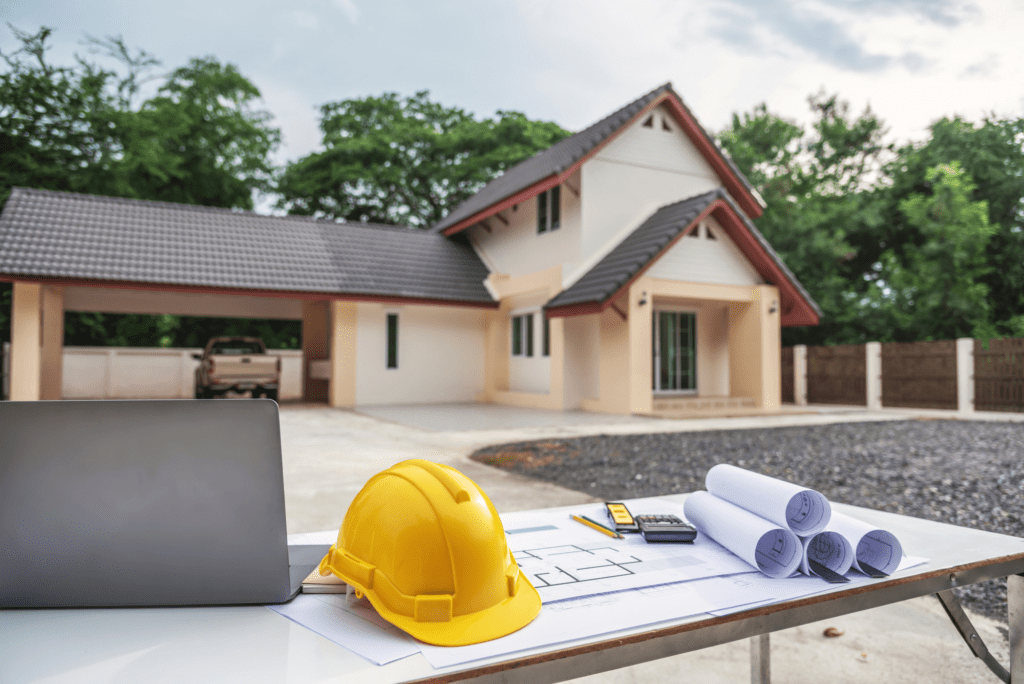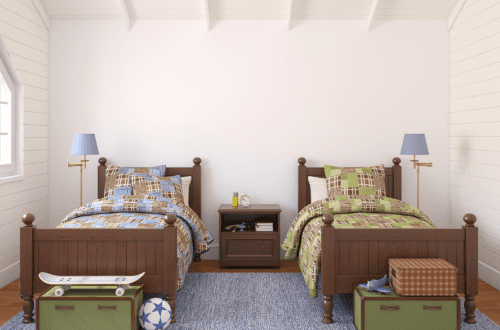5 Common Mistakes to Avoid in Residential Construction
Construction projects come with their fair share of risks, but residential construction carries an especially high degree of responsibility. It’s important to be aware of the potential pitfalls that can arise when taking on a residential construction project. From miscalculating costs to overlooking key elements of design, avoiding common mistakes in residential construction can help ensure that your project is completed on time and within budget.

What is Residential Construction
Residential construction refers to the process of building homes or other residential buildings. It involves many different aspects, including planning, design, and construction. Residential construction is a complex field that requires a lot of skill and expertise.
There are many different types of residential construction projects, ranging from single-family homes to large apartment complexes. Each project is unique and requires careful consideration when it comes to materials, design, and building techniques.
To ensure that a residential construction project is successful, it’s important to work with experienced professionals who have the knowledge and skills necessary to get the job done right. This can include architects, engineers, contractors, and other specialists who understand the intricacies of residential construction. Whether you’re building your dream home or developing an entire neighborhood, working with experts in this field can help ensure that your project is completed on time and within budget.
5 Common Mistakes to Avoid in Residential Construction
Residential construction can be a pretty complicated process, and even seasoned contractors can make mistakes. However, some errors are more common than others in this field. As someone looking to build their own home or hire a contractor, it’s important to know what these typical mistakes are so that you can avoid them.
Mistake #1: Poor Planning
Poor planning is one of the most common mistakes that residential construction experts make. This mistake occurs when builders and architects fail to take into account all the factors that can influence the success of a project. Some common reasons for poor planning include inadequate funding, lack of experience with similar projects, and insufficient attention to detail.
When builders don’t have a clear plan from start to finish, it can result in delays and additional costs. For example, if they don’t consider how long each step will take or if materials are available when needed, it could lead to timeline issues. These delays can cause clients to become unsatisfied with the progress of the project and may even result in litigation.
To avoid making this mistake in residential construction projects, builders should invest time upfront in developing a comprehensive plan. This includes assessing any potential risks or challenges associated with different stages of construction and ensuring that adequate resources are available for each phase. Ultimately, careful planning will help ensure the successful completion of any residential construction project while minimizing unexpected costs or setbacks along the way.
Mistake #2: Unskilled Labor
Using unskilled labor in residential construction is a common mistake that can lead to serious consequences. Unskilled laborers may lack the necessary expertise, experience, and knowledge required to execute the project efficiently, safely, and effectively. The work done by such workers may not meet industry standards or building codes, which could result in legal issues as well as structural defects.
Furthermore, using unskilled labor can increase the risk of accidents on the job site. These workers are less likely to know or follow safety protocols, which puts them and other workers at greater risk of injury. Inexperienced workers may also struggle with properly handling tools and materials, making costly mistakes that could delay project completion or require expensive repairs.
To avoid these problems associated with unskilled labor in residential construction projects, it is important to hire skilled professionals who have been trained for specific tasks related to your project. Skilled tradesmen such as electricians and plumbers must be licensed by their state authorities before they can perform any related work in a residential setting. This ensures that only qualified personnel will undertake critical aspects of your home-building process while minimizing any risks involved.
Mistake #3: Low-Quality Materials
Using low-quality materials is a major mistake in residential construction that can lead to costly repairs and replacements down the line. While it may be tempting to cut corners and save money by using cheaper materials, this decision will likely cost more in the long run as these materials will not hold up over time. For example, using low-quality roofing shingles could lead to leaks and water damage, while cheap flooring options may wear out quickly and require frequent replacement.
When selecting building materials for a residential construction project, it is important to prioritize quality over cost. This means choosing products that are durable, energy-efficient, and built to last. High-quality building materials from doorcontrolsdirect.co.uk/ can also add value to a home, increasing its resale value in the future. Additionally, investing in sustainable or eco-friendly materials can have a positive impact on both the environment and the health of those living in the home.
Ultimately, choosing high-quality building materials is an investment that will pay off in the long run by ensuring a safe and comfortable living space for years to come. Taking shortcuts with lower quality options may seem like an easy way to save money upfront but ultimately puts homeowners at risk for costly repairs, replacements, or even safety hazards such as mold or structural issues.
Mistake #4: Inadequate Supervision
Inadequate supervision is one of the biggest mistakes that can lead to disastrous consequences in residential construction. When there is a lack of proper supervision, it becomes difficult to ensure that all work is being carried out according to the plan and specifications. This often leads to errors and delays in the project, which can cost both time and money.
Additionally, inadequate supervision poses a significant safety risk for workers on site. Without proper oversight and guidance from supervisors, workers may not follow necessary safety protocols or use appropriate protective gear, leading to accidents and injuries.
To avoid this mistake, it’s essential to have experienced and knowledgeable supervisors on-site at all times who can oversee the work being done by contractors or subcontractors. Regular check-ins from project managers or other stakeholders can also help ensure that everything is going according to plan, allowing for any necessary adjustments to be made before problems arise.
Mistake #5: Ignoring Regulations
Ignoring regulations is a common mistake made by residential construction professionals. Not only is it a legal requirement to follow building codes and regulations, but doing so also ensures the safety of the occupants of the home. Failing to adhere to these regulations can result in hefty fines, lawsuits, and even project delays.
One important regulation must be followed in obtaining the necessary permits before beginning any construction work. Failure to do so can lead to legal complications down the line. Another crucial regulation is ensuring that all electrical and plumbing work meets local codes and standards. This includes proper insulation, wiring, grounding, and installation of fixtures.
Overall, ignoring regulations in residential construction poses serious risks and consequences for both professionals in the industry as well as homeowners who ultimately occupy the space. It’s important for those involved in construction projects to stay up-to-date on current building codes and ensure compliance throughout every stage of their work.
Final Thoughts Avoiding Mistakes in Residential Construction
In conclusion, avoiding mistakes in residential construction is crucial to ensure the longevity and safety of a home. One mistake that should be avoided is overlooking the importance of a solid foundation. Weak foundations can cause structural damage over time and ultimately lead to costly repairs. Another mistake to avoid is cutting corners with materials or workmanship, as this can also result in expensive repairs down the line.
Additionally, it’s important not to overlook ventilation and insulation during construction. Poor ventilation can lead to moisture buildup and mold growth, while inadequate insulation can result in energy inefficiencies and high utility bills. Lastly, failing to obtain proper permits or ignoring building codes can result in legal issues and financial penalties.
By being aware of these common mistakes in residential construction and taking the necessary steps to avoid them, homeowners can save themselves significant stress, money, and potential hazards in the long run.






